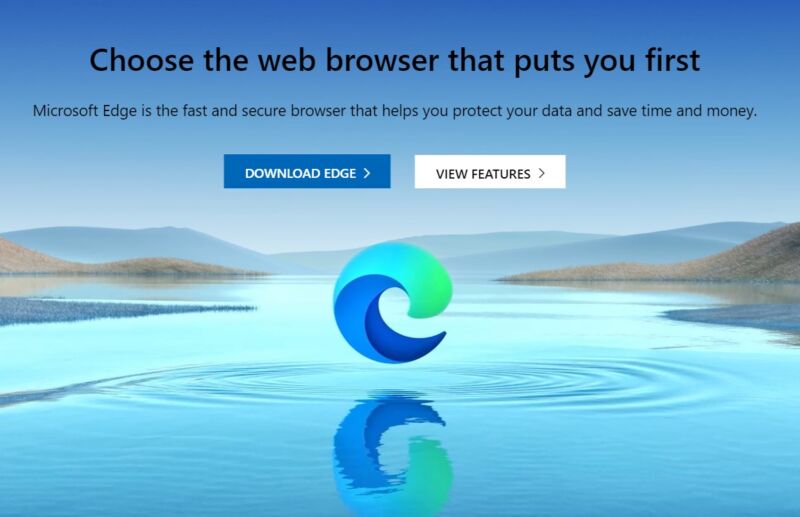
Enlarge / If Microsoft really wants to "put you first," it needs to tweak its strategy with Edge. (credit: Microsoft)
I've been a Microsoft Edge user for a little over two years now, starting right around when the first macOS preview version was released. As with many decisions, I arrived at it using a combination of evidence-based reasoning (it works on all the platforms I use, it retains the speed and compatibility of the Chromium engine, its memory and battery usage and privacy controls seemed at least marginally better than Chrome's) and gut feelings that felt right to me regardless of whether they were factually true (that giving more personal data to Microsoft bothers me less than giving it to Google and that a big company's browser would be supported better in the long run than smaller, less-used browsers like Brave or Opera).
I've mostly been happy living on the Edge since I switched, and I certainly don't miss Chrome. But in the last few months, I've been progressively more annoyed by some of the "value-add" features Microsoft has tacked on to the browser and by the way Microsoft pushes Edge on people who use Windows (and Bing on people who use Edge). This annoyance has come to a head with Microsoft's addition of a buy-now-pay-later service called Zip to the newest version of Edge. This addition seems superfluous at best and predatory at worst, and it has spawned a backlash among users, Microsoft-adjacent tech media, and IT professionals.

One of many screens you'll see in Edge prompting you to set your default search engine back to Bing. (credit: WindowsLatest.com)
I don't like the Zip integration and I don't plan to use it, but I wouldn't be so annoyed by it if it weren't part of a pattern that has emerged (or, at least, become more obvious) in the last year or so. The price comparison and coupon features that Microsoft added a year or so ago generate a huge amount of automatic on-by-default pop-ups, and when you disable those pop-ups or turn the features off entirely, they don't sync to your other PCs along with your bookmarks and other settings.
Read 5 remaining paragraphs | Comments
https://ift.tt/3G3yxFX
Comments
Post a Comment